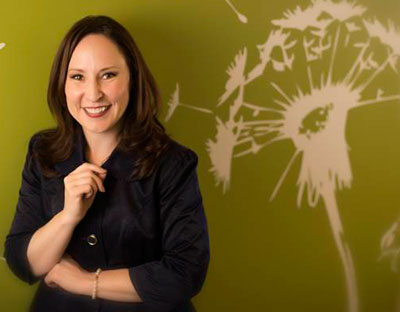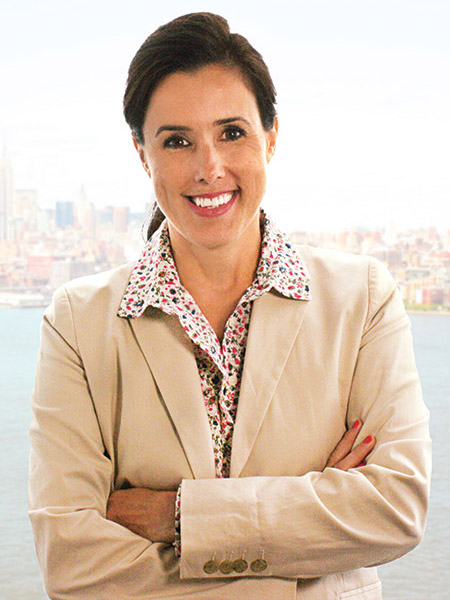What parent doesn’t wish for their children to have the best? Sometimes that means encouraging them to follow in the parent’s footsteps educationally and vocationally. That was true with these sets of Owen alumni—parents whose children selected business careers and chose Vanderbilt for their MBAs. The younger alumni, in turn, tell of watching their parents work hard for their degrees, seeing how Vanderbilt helped them succeed and determining that the school was right for them as well. Whether just graduated or nearly retired, these multigenerational alumni share experiences that illustrate how their Owen years made an impact on themselves and their families.

Emily Davis, MBA’04, and Dr. Richard Davis, MD’73, Executive MBA’87
When Emily Davis was accepted to Vanderbilt’s MBA program, her father, Dr. Richard Davis, presented her with a congratulatory gift: an HP-12C financial calculator. He knew firsthand she would put it to good use.
Richard, a Vanderbilt-trained physician and practicing obstetrician, completed Vanderbilt’s Executive MBA program in 1987. His time there made a lasting impression on his daughter.
“My dad would have his classmates over at nights and on weekends. They’d hole up in the war room—my dad’s office—in front of computers and flip charts, working on what, I didn’t know,” Emily says. “But I remember thinking they seemed like a real team. They were engaged. And they looked like they were actually having fun solving problems.”
The experience was significant for Richard as well. “By the time I left Owen, I realized what (Emeritus Professor of Accounting) Germain Böer had once said: ‘This program will change your life. It will give you a 180-degree view of the world,’” he recalls. “And it did. I was able to use what I learned at Owen to pursue entirely new things.”
Richard went on to serve as a medical adviser to an entrepreneurial startup, Veran Medical Technologies, founded by—coincidentally enough—two members of Emily’s MBA class. He served on the Veran board for nearly six years.
Emily, who got her bachelor’s degree in biology, was considering her options beyond the medical technology field when her dad advised her to look at business programs. At Owen, she pursued an environmental management emphasis and took classes through the Vanderbilt Center for Environmental Management Studies, which combines coursework in the law, business and engineering schools.
After a stint at International Paper managing everything from forest conservation to product stewardship programs, Emily is now the sustainability program manager for DHL Supply Chain Americas. She’s in charge of all the division’s energy efficiency initiatives and carbon accounting for operations in the United States, Canada and Latin America. “Thanks to my Owen experience, I was able to jump companies and quickly learn a different field,” she says.
The latest family member to matriculate at Vanderbilt is Nathan Taylor, husband to the youngest Davis daughter, Allison. A senior sales adviser at Dell, he entered the Executive MBA program this fall.
Upon admission, Richard gave his son-in-law his own HP-12C calculator. Emily gave her brother-in-law this advice: “Have fun. It’s two years of your life that will—as my dad has said—change you. You will learn so much.”

Allie Noll, MBA’14, and Eric Noll, MBA’90
Enrolling at Vanderbilt was a homecoming for Allie Noll. As a toddler, she had frequented the hallways, holding the hand of her dad, Eric. Two decades later, Owen was the lone contender when she thought of business school.
Eric, now president and CEO of ConvergEx, a global brokerage and trading-related services company, entered Vanderbilt in 1988. He’d realized during his second year of law school that he didn’t want to be a lawyer and was working nights at UPS while his wife, Georgie, worked days at Ralph Lauren. The team at Owen told him if he came here, they’d get him through.
 The Nolls created a patchwork of Eric’s classes, part-time jobs—Georgie had three—and caring for Allie. Not infrequently, something would fall through and Allie would accompany her dad to class. “One time, I had a job interview and no one to watch Allie. Peter Veruki (then director of planning and placement) took care of her,” Eric says. “I believe only in a school like Owen could that happen.” When Eric crossed the stage at Commencement, 3-year-old Allie escaped from her mom and spent the rest of the ceremony in her dad’s lap.
The Nolls created a patchwork of Eric’s classes, part-time jobs—Georgie had three—and caring for Allie. Not infrequently, something would fall through and Allie would accompany her dad to class. “One time, I had a job interview and no one to watch Allie. Peter Veruki (then director of planning and placement) took care of her,” Eric says. “I believe only in a school like Owen could that happen.” When Eric crossed the stage at Commencement, 3-year-old Allie escaped from her mom and spent the rest of the ceremony in her dad’s lap.
Allie displays the same determination today. After earning her undergraduate degree, she applied for 25 jobs. She joined Coca-Cola in sales and marketing. A few years later, she considered going to law school. “My dad said, “No, don’t do it,’ ” Allie recalls. “He said ‘You’re working for the largest company in the world, and you’re killing it. You belong in business school.’ ”
Vanderbilt allowed her to build a career in what she had loved all her life—clothing and fashion. “I knew I’d never have another opportunity like this to hit the reset button on my career,” she says. “Clothing and fashion companies don’t typically hire MBAs, but Tami (Fassinger) and Read (McNamara) supported me.” Allie is now in her “perfect job,” as a strategic sourcing analyst for specialty retail company Urban Outfitters Inc.
Eric was the Commencement speaker for Allie’s graduation. The former NASDAQ executive counseled the newly forged graduates to go ahead and take chances with their careers, saying “you’ll fall down a lot, but the opportunities that come from that will be rewarding.” He reinforced that sentiment with Allie. “I told her that everyone is going to stumble,” he says. “How you respond is the key.”
Eric gave Allie her diploma when she crossed the Owen stage—again. “It was such a thrill,” Eric says.
Allie says that for her, Commencement was one part embarrassed, two parts emotional and one part proud. “When they recognized my
dad’s achievements, it was a really proud, very special moment,” Allie says. “My dad and I are very close. He’s not just my dad, he’s my mentor. I trust him.”
Watch video at vu.edu/owen-noll

Todd Falk, BE’02, MBA’07; Vanessa Falk, BA’03, MBA’08; and Robert I. Falk, EMBA’80
When Bob Falk entered the first Executive MBA class at Vanderbilt, he couldn’t have known that one day his children would blaze their own trail at the school.
Bob’s son, Todd, and daughter, Vanessa, also became pioneers, joining the first and second classes, respectively, in the school’s Health Care MBA program.
“We would have discussions around the dinner table about school, work and their projects,” Bob says. “I guess you could say they followed in my footsteps.”
Those conversations resulted in all three Falks succeeding in what has been called the “Silicon Valley of health care.”
A mechanical engineer, Bob came to Nashville from Chicago as vice president of acquisitions and development for Hospital Affiliates. After earning his EMBA, he founded Healthcare Corporation of Tennessee, a renal dialysis and nursing-home company, which he subsequently sold. That company eventually became Davita Inc., one of the largest providers of dialysis services in the United States. Bob went on to start some 30 other businesses and is currently engaged in several entrepreneurial, investment and real estate initiatives.
“Owen definitely helped my father in his career,” Todd says, “and that influenced me to attend business school there.”
Todd, formerly a construction engineer with a degree from Vanderbilt School of Engineering, specialized in strategy and operations at Owen. Coincidentally, he is now division vice president for Davita, overseeing 75 dialysis clinics in Tennessee and Alabama.
Meanwhile Vanessa, a Vanderbilt premed major and self-proclaimed “numbers person,” opted for finance. Today she is a senior financial analyst with Nashville-based SpecialtyCare Inc., one of the world’s leading providers of clinical services to hospitals.
The Falks agree that being taught by business leaders at Vanderbilt was a real plus. “Owen does a terrific job of connecting its students with Nashville business leaders,” Vanessa says.
In addition to working in the health care industry, the Falks also enjoy similar leisure activities like flying planes and deep sea fishing. They also discuss the possibility of going into business together someday.
That scenario has given Bob second thoughts about one of his early business decisions: “If I had known Todd wanted to go into the dialysis business,” he jokes, “I wouldn’t have sold the company.”

Lucy Hovious, MBA’83, and Hayley Hovious, MBA’08
Lucy Hovious is a role model not only for her daughter, Hayley, but also for many of Hayley’s friends.
“My mother has always inspired me,” Hayley says. “Now she’s also a resource for my friends who are trying to balance career and family.”
While Lucy was studying business at Vanderbilt, first in a former mortuary and later in the “new” management building, she was also caring for a family that included a son with special needs. She didn’t have many peers nor time to socialize with her fellow students.
“I had to compartmentalize my life,” she says. “I went to school and then I went home.
It was a very different experience for Hayley.”
After earning her MBA, Lucy became an executive with SunTrust Bank. In 2004, she left banking for the private, nonprofit Housing Fund. It finances affordable housing and neighborhood revitalization projects throughout Middle Tennessee.
“Owen opened many doors for me. I laugh about the fact that I learned more than anyone else, because I knew so little about business when I started,” she says.
Hayley graduated from her mother’s alma mater, Smith College, in 2000, and worked for the E&J Gallo Winery and other companies before deciding to go business school. Although she considered Harvard, where her father earned his MBA, Vanderbilt’s friendliness and emphasis on teamwork won her over.
“My mother was very supportive of me going to Owen,” she says. “Even though we had very different experiences there, she often told me about her renowned professors, like Dewey Daane and Germain Böer.”
Lucy says she was pleased with the direction the school was taking and in particular, its emphasis on working in teams. “That’s so very important in business, and I don’t see other schools giving it as much attention,” she says.
After graduation, Hayley joined the State of Tennessee as trade director, responsible for the startup and management of the state’s export program, TNTrade. She recently joined the Nashville Health Care Council as executive director of the organization’s Fellows Program, an intensive program that educates and develops leaders in the city’s health care industry.
In yet another Vanderbilt connection, she works on the Fellows Program with former Senator Bill Frist, M.D., and Larry Van Horn, associate professor of management and executive director of health affairs for Owen. “It’s a really exciting job,” she says.

Jim Stadler, Executive MBA’84, and George Stadler, MBA’91
Jim Stadler enrolled in Vanderbilt’s Executive MBA program to help him transition to the next phase in his business life. “I needed to restimulate my brain,” the businessman says. “I thought Owen would help me find some answers.” Jim completed the program in 1984, the same year he turned 50, and stepped into the second phase of his career—developing and owning business properties.
He also urged his son George, then in his late 20s and working at J.C. Bradford, to get an MBA. “We had a young child and another on the way, and all I could think was, ‘how would I do that?’ ” George remembers.
But in 1989, he realized he would need that MBA to keep advancing in his career. “I had the working knowledge, but I didn’t have the framework to hang it on,” he says. “So I dropped out of the workplace and enrolled in Owen,” focusing on finance. He received his chartered financial analyst designation three years after earning his MBA. “I was able to pass right through,” he says of the three-level examination process that typically has a pass rate of less than half. “Owen prepared me for that.”
Jim keeps his hand in business; he’s now developing residential lots with a partner. “It’s pretty difficult for me to think about retiring, although I’m 80 years old,” he says.
After Owen, George was a portfolio manager for 18 years, including six years in the treasurer’s office at Vanderbilt University. In 2009, he founded HMS Capital Management, a registered investment adviser, with two partners. “We felt there was a niche in the market that wasn’t being served as well as it should be and that we were needed,” George says. “We were right.” George credits much of his success to the school. “I use my Owen experience every day in this business,” he says.
The Stadler family are longtime Vanderbilt supporters, giving to Owen, Peabody, athletics and the Monroe Carell Jr. Children’s Hospital. They also support the Medical Center through the Canby Robinson Society.
Thinking back, Jim remembers witnessing the start of personal computers, saying “it was fascinating back then to see how people were using them.”
George recalls the culture clash between him, a young father, and his much younger classmates. “They would say ‘let’s get together at 10 p.m. for our group meeting,’ and I would say, ‘no we’re not,’” he says with an infectious laugh. “And one time a group member offered to pick me up something to eat, and brought me back black coffee and French fries.
I had forgotten that people ate that way.”
Are you part of a multigenerational Owen family? Let us know. Send your stories to owenmagazine@vanderbilt.edu and we’ll post them online. For more family stories, go to vu.edu/owen-secondgeneration.

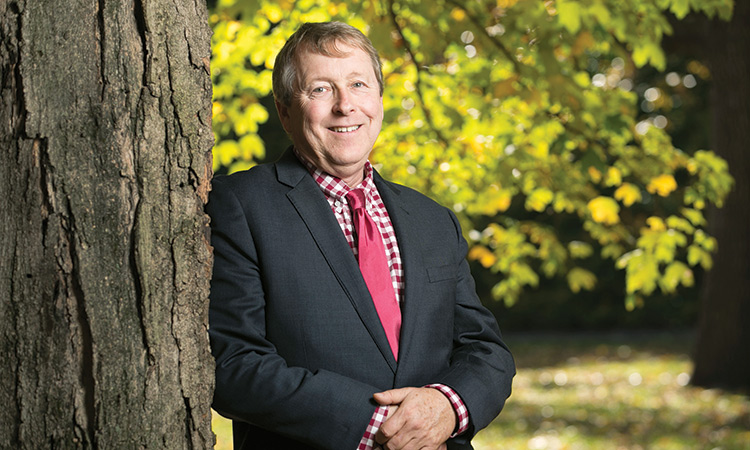
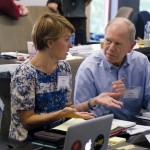
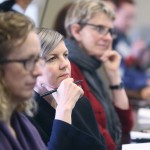
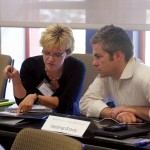
















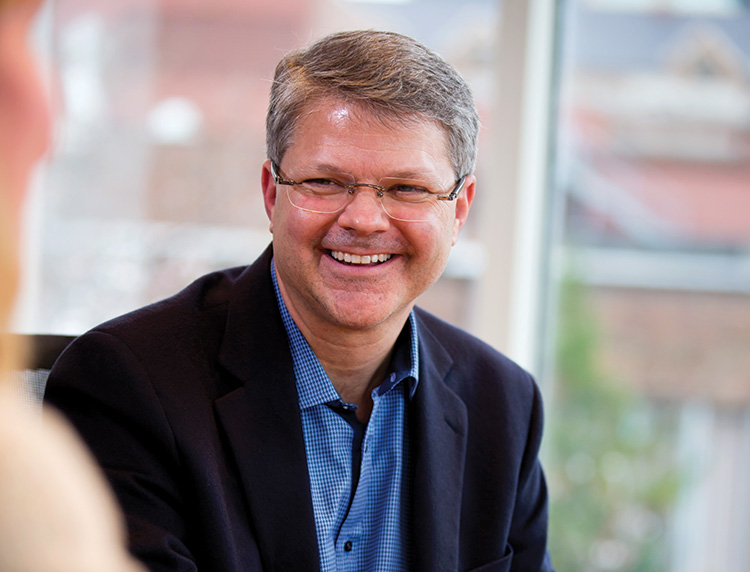

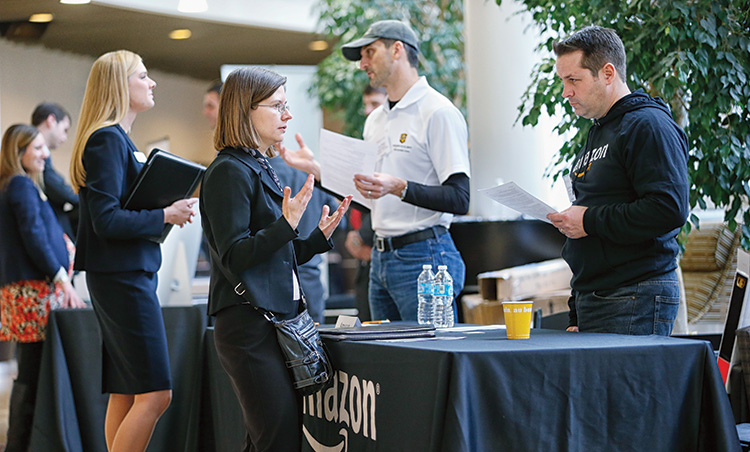









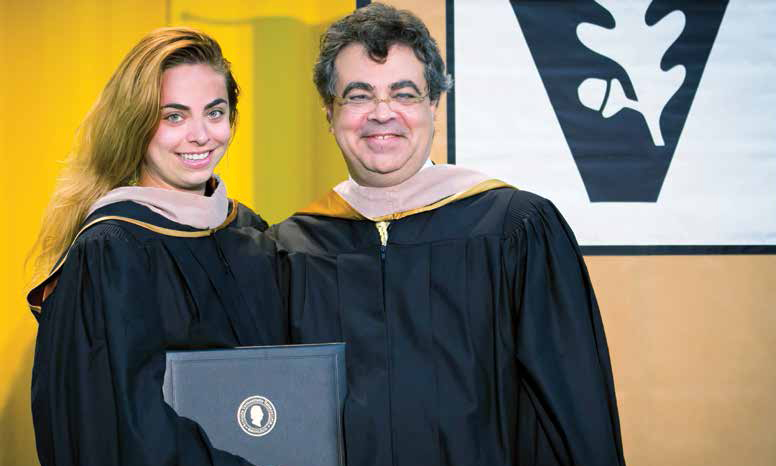


 The Nolls created a patchwork of Eric’s classes, part-time jobs—Georgie had three—and caring for Allie. Not infrequently, something would fall through and Allie would accompany her dad to class. “One time, I had a job interview and no one to watch Allie. Peter Veruki (then director of planning and placement) took care of her,” Eric says. “I believe only in a school like Owen could that happen.” When Eric crossed the stage at Commencement, 3-year-old Allie escaped from her mom and spent the rest of the ceremony in her dad’s lap.
The Nolls created a patchwork of Eric’s classes, part-time jobs—Georgie had three—and caring for Allie. Not infrequently, something would fall through and Allie would accompany her dad to class. “One time, I had a job interview and no one to watch Allie. Peter Veruki (then director of planning and placement) took care of her,” Eric says. “I believe only in a school like Owen could that happen.” When Eric crossed the stage at Commencement, 3-year-old Allie escaped from her mom and spent the rest of the ceremony in her dad’s lap.








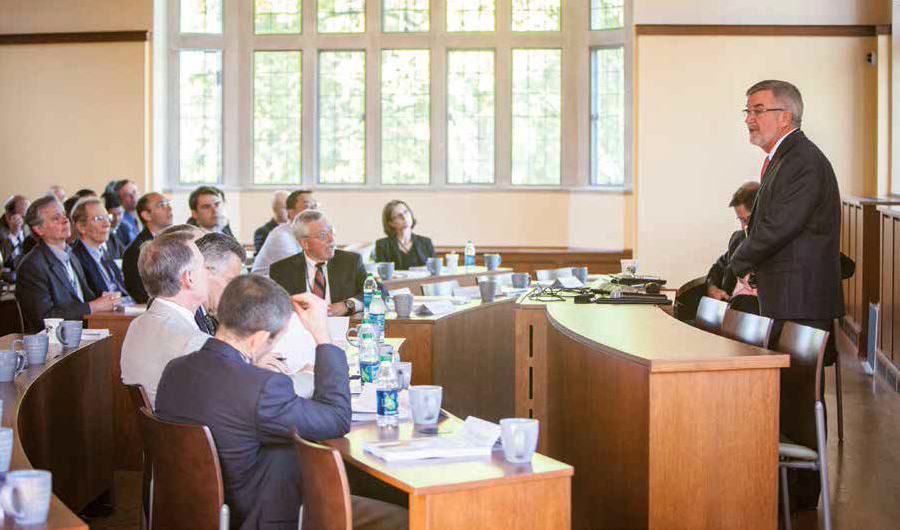


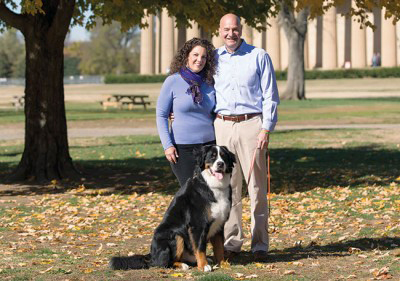

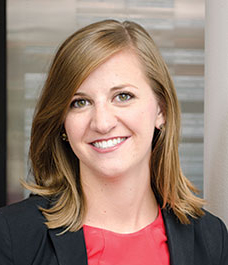




 I am currently on the last leg of a more than 24-hour trip home from Tel Aviv. I was there for a two-day MBA recruiting fair sponsored by EducationUSA, a U.S. Department of State-sponsored network of educational advisors.
I am currently on the last leg of a more than 24-hour trip home from Tel Aviv. I was there for a two-day MBA recruiting fair sponsored by EducationUSA, a U.S. Department of State-sponsored network of educational advisors.






 The J.D./M.S.F. dual degree was one of the fastest programs developed and launched at Vanderbilt. The deans conceptualized it in fall 2013, the curriculum was proposed by late winter 2014, and the degree was approved by both schools’ faculty and the provost in time to start accepting applications in April.
The J.D./M.S.F. dual degree was one of the fastest programs developed and launched at Vanderbilt. The deans conceptualized it in fall 2013, the curriculum was proposed by late winter 2014, and the degree was approved by both schools’ faculty and the provost in time to start accepting applications in April.
